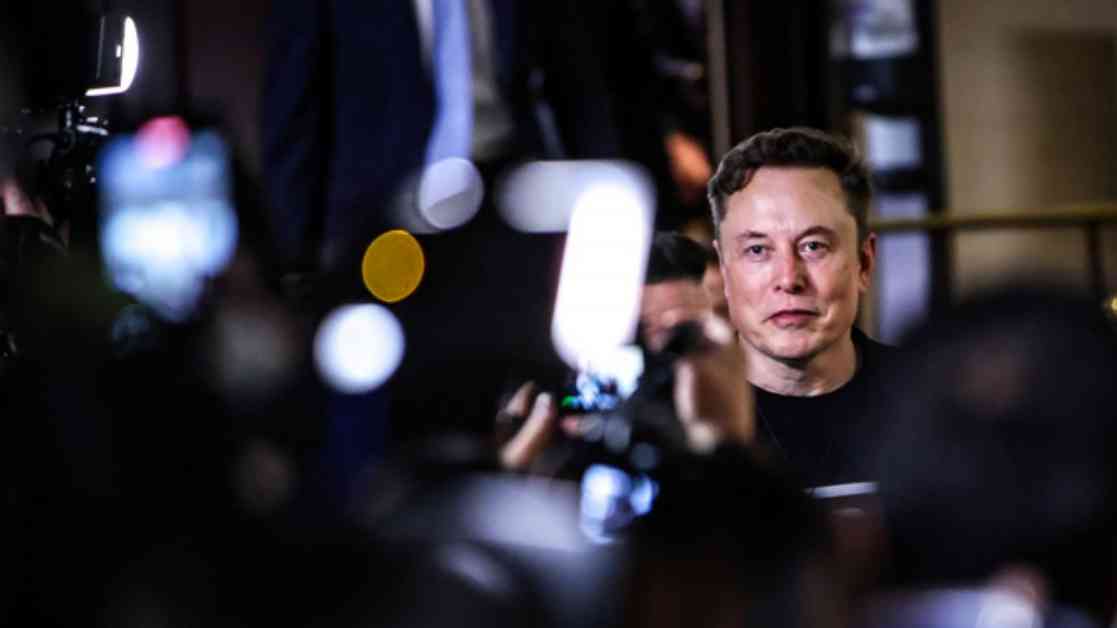Elon Musk’s Apology and Resolution in the Face of Polish Foreign Minister Dispute
In a surprising turn of events, Elon Musk has extended an olive branch by reassuring that he would never disconnect Ukraine from the crucial Starlink support, effectively defusing a tense situation involving Polish Foreign Minister Radosław Sikorski and U.S. Secretary of State Marco Rubio. Musk emphatically stated, “To be extremely clear, no matter how much I disagree with the Ukraine policy, Starlink will never turn off its terminals,” in a post on X.
Starlink, a satellite internet constellation operated by SpaceX and owned by Musk, offers global satellite Internet access coverage. The recent clash involving Musk, Sikorski, and Rubio signifies the latest chapter in the ongoing tensions between the U.S. and Europe surrounding the conflict in Ukraine.
The Origin of Dispute: Musk’s Controversial Post and the Response
The controversy began when Elon Musk took to social media on a Sunday to speculate about the possibility of cutting off Ukraine’s access to the Starlink system, claiming, “My Starlink System is the backbone of the Ukrainian army. Their entire front line would collapse if I turned it off.” This inflammatory statement came amidst reports that U.S. negotiators were considering limiting Ukraine’s access to critical minerals, with potential repercussions for the country’s Starlink service.
Polish Foreign Minister Sikorski swiftly responded, expressing concerns about SpaceX’s reliability and warning that Poland would seek alternative suppliers if necessary. He revealed that Poland currently pays $50 million annually for Ukraine’s Starlink access, highlighting the significance of the service in the region.
The Escalation: Musk and Rubio’s Retort
Elon Musk and Marco Rubio fired back at Sikorski’s statements, accusing him of fabricating claims and downplaying the importance of Starlink. Rubio asserted that Ukraine owed its resilience in the conflict to the vital internet service provided by the U.S. and Poland, emphasizing the strategic value of Starlink in the ongoing conflict.
Musk, in agreement with Rubio, dismissed Sikorski’s remarks and belittled the Polish diplomat, stating, “Be quiet, small man. You pay a tiny fraction of the cost. And there is no substitute for Starlink.” The heated exchange between the involved parties underscored the high stakes and geopolitical implications of the situation.
Expert Insights and Global Ramifications
Yaroslav Trofimov, the chief foreign affairs correspondent of The Wall Street Journal, characterized the dispute as an “extraordinary moment in diplomacy,” highlighting the shifting dynamics of technological alliances between Europe and the U.S. He noted that Europe’s growing interest in technological independence from the U.S. was becoming a pressing national security concern.
Contrary to Musk’s assertion that Starlink is irreplaceable, shares in satellite operator Eutelsat, among the potential alternatives to SpaceX, surged significantly in response to the escalating tensions. The market response reflected the growing uncertainty surrounding Starlink’s exclusivity in providing satellite support to Ukraine.
In Conclusion: A Path Forward Amidst Diplomatic Turbulence
As Elon Musk, Radosław Sikorski, and Marco Rubio navigate the complexities of international relations and technological dependencies, the resolution of the Starlink dispute remains critical for all parties involved. Musk’s apology and commitment to maintaining Ukraine’s access to Starlink signal a step towards de-escalation and cooperation in the midst of geopolitical challenges.
The evolving landscape of global diplomacy underscores the need for collaborative solutions and strategic partnerships to address the complex issues at hand. As stakeholders reevaluate their positions and priorities, the fate of Starlink and its role in shaping international affairs hangs in the balance.

















